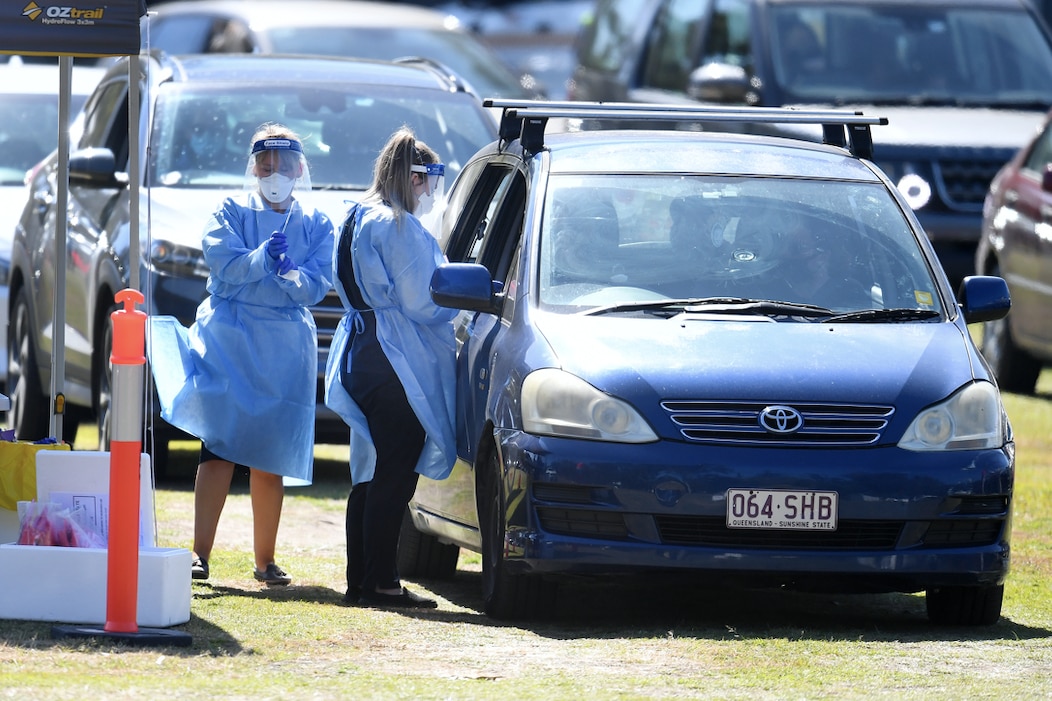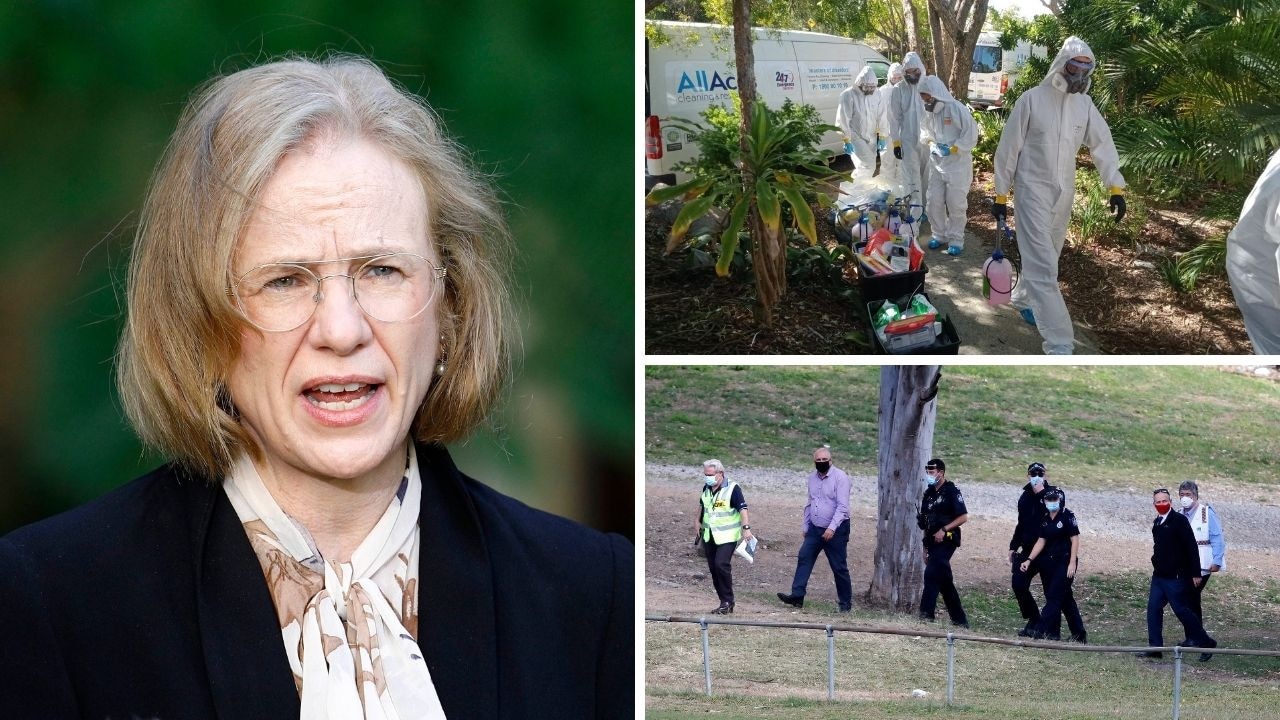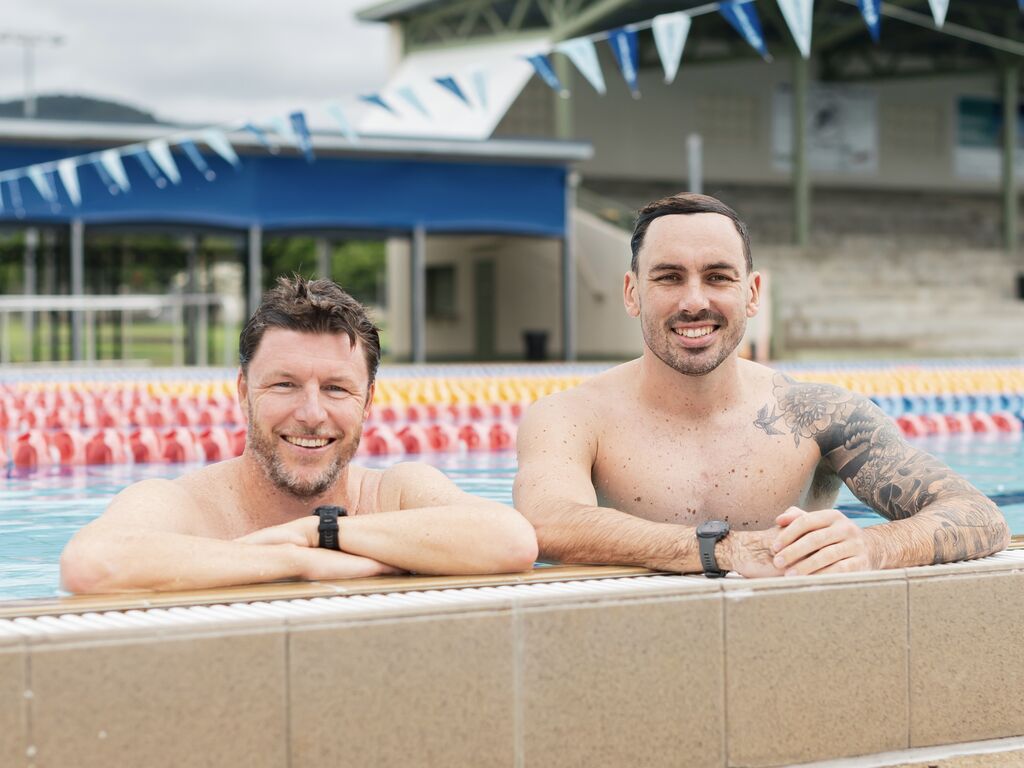
New South Wales has recorded 239 new local COVID-19 cases, with Premier Gladys Berejiklian urging residents to "get vaccinated" this month.
Of the 239 new local COVID-19 cases, 61 people were infectious in the community for either whole, or part, of the incubation period.
Contact tracers linked 115 of the new infections to known cases and are investigating the source of infection for 124 cases.
Ms Berejiklian said it was encouraging that the virus has not spread beyond the epicentres of western and south-western Sydney, adding that there will be a renewed push to boost vaccine uptake.
"We are again seeing the virus is circulating in workplaces and households," she said. "The one positive take-out is the virus has not in the main, spread outside those eight local government areas of concern."
Push towards 80 per cent vaccination rate
Ms Berejiklian said higher rates of vaccinations would be central to the state government's approach to containing the virus.
"Let August be the month that we break records in vaccinations because that is our ticket to freedom," she said, confirming that the state government would be adopting the national cabinet aim for 70 and 80 per cent of vaccinations in the adult population.
She said the 10 million doses - or the 80 per cent target - is the big goal, but even achieving 50 per cent would allow for more easing of restrictions.
"The higher the rate of vaccine, the more options we have moving forward."
She defended the redirection of vaccine supply from regional NSW to vaccinate Year 12 students going back to face-to-face lessons in the eight LGAs of concern.
"It is a mitigation and a way of focusing our energy into a south-western and western Sydney local government areas and that is really important.
"All of us are making sacrifices to reduce spread and get us out of lockdown as soon as possible; and I really think people all the sacrifices they are making because it is really challenging times."
Building up trust in eight LGAs
Tougher restrictions are in place for eight LGAs in western and south-western Sydney, including Canterbury-Bankstown, Fairfield, Liverpool, Blacktown, Cumberland, Parramatta, Campbelltown and Georges River.
MPs in the LGAs have called for blanket rules to be applied to the whole of Greater Sydney, concerned by the emphasis on sending hundreds of police and Defence force personnel to enforce compliance.
NSW Health Minister Brad Hazzard said a "nuanced" response is necessary and "strikes the right balance".
"We're trying to strike the balance, we think we have got it right," he told ABC's Insiders program on Sunday morning.
He said the state government is working hard to build trust with migrants and refugees in the eight LGAs.
"(In the eight LGAs) there is an incredible multicultural mix, but they come from countries where they haven't built up trust in government. And that is what we need to do - build up trust in that area."
Four people died in their homes
NSW Health said four deaths in the latest outbreak involved people who died in their homes.
Ms Berejiklian conceded that fear is stopping residents in the eight LGAs from seeking early hospital treatment.
"It is very sad that people don't even get any medical help and are dying at home. We will see more of that unless people come forward and get tested."
She reassured those who may be the main breadwinner in the household that extra financial support is available for those who need to get tested or seek treatment for COVID-19.
"It only takes a handful of people to be scared, sometimes through fear, sometimes through not wanting to accept what it could be, but please note: protect your loved ones. If you have the mildest of symptoms, come forward and get tested.
"The government is working with community leaders to provide direct support - financial and otherwise - in those eight LGAs."
Payment considered to overcome reluctance to get tested
Ms Berejiklian said NSW would consider introducing a payment to cover loss of income for people who are in isolation awaiting test results.
In Victoria last year, a $450 payment was introduced for those who did not have sick leave to cover the loss of working hours while being isolated before the test results are returned.
"For a variety of reasons, unfortunately, people aren’t coming forward to get tested and they are in denial, thinking they don’t have the virus.
"This message we need to get everybody is you can deteriorate very quickly. You might start off with a mild symptoms in the morning and by the end of the day have very severe symptoms and succumb."
There were 87,712 COVID-19 tests conducted in the 24-hour period until 8pm Saturday, compared with 105,963 tests the day prior.
Most patients in ICU are younger and not vaccinated
Of the 54 people in ICU, 49 were not vaccinated.
NSW Health's Dr Jeremy McAnulty said people in the 18 to 39 age bracket are "driving a lot of this pandemic".
"This is the age group that tends to be a link between kids, younger people, and older, elderly relatives," he said.
"If you are in that age group it is important that you be aware that you are very vulnerable to the infection, as we have seen in ICU numbers, you can get serious disease. It is important you come forward for vaccination."
Seven of the patients in ICU are in their 20s, five are in their 30s, two are in their 40s, six are in their 50s, 14 are in their 60s and 10 are in their 70s.
Police warn anti-lockdown protesters of ongoing operation
NSW Police Deputy Commissioner Mick Willing said officers would continue to be deployed to prevent any anti-lockdown protests.
"If you are thinking of participating in a protest-type action, we will be there and we will deal with you."
A six-hour operation with more than 1,3000 officers was conducted on Saturday to prohibit transport services conveying passengers into the CBD.
Thirty-eight people were arrested on Saturday for public health breaches and 516 fines were issued.
"Yesterday's operation was a success. We didn't have a repeat of the disgraceful events of last week. There was not a mass seeding event...The operation is ongoing."
Ms Berejiklian said she remained hopeful the lockdown could be lifted within the four-week extension period.
"Of course we can. There are a lot of things dependent on that," she said saying a higher vaccination rate and testing numbers would be pivotal.
The list of exposure sites has been updated in the last 24 hours to include public transport routes and supermarkets in Double Bay and St Marys.
NSW records 239 new local COVID-19 infections, including 124 mystery cases - SBS News
Read More












